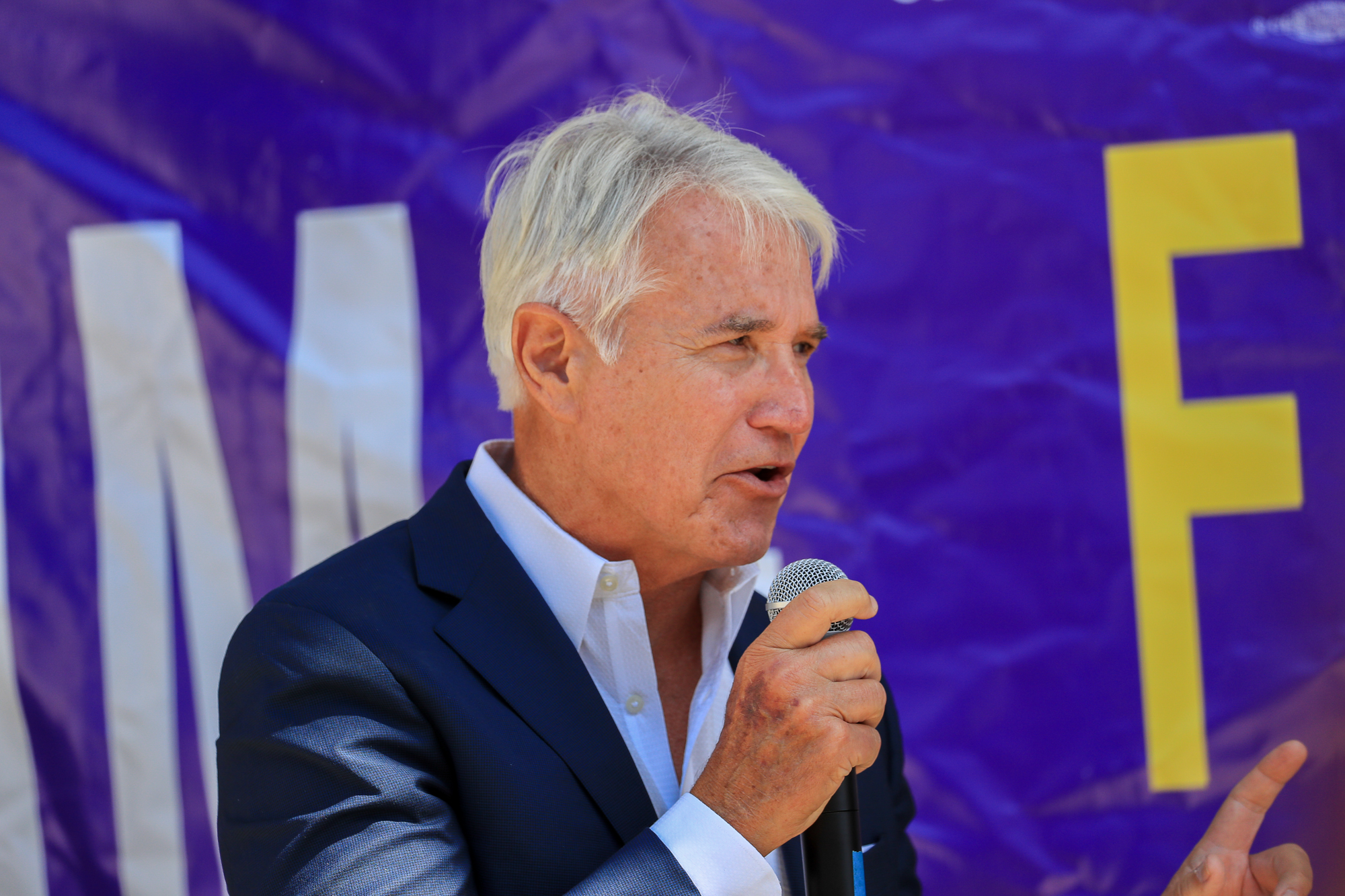
 By David M. Greenwald
By David M. Greenwald
Executive Editor
While many believe that San Francisco DA Brooke Jenkins has reignited the war on drugs, reform-minded prosecutors and other reformers continue to push for a new approach.
In an op-ed this week Los Angeles DA George Gascón acknowledges the magnitude of the problem. A recent report from the Los Angeles County Department of Public Health found that “fentanyl-related fatalities have skyrocketed by a whopping 1,280% in the last five years alone. In 2021, the synthetic opioid killed over 1,500 people, and accounted for over half of all drug overdose deaths in L.A. County. Thousands more have nearly lost their lives, driving up emergency  room visits and hospitalizations.”
room visits and hospitalizations.”
The DA calls for a “war against fentanyl” but argues, “but we need to do it in a way that actually solves the problem, instead of destroying communities.” He said, “We’ve been good at the latter in the past, but not the former. I vow to change that.”
What that means is not using a carceral approach.
“As we fight to stem the harms of fentanyl, we cannot use tried-and-failed drug policies of our last drug war just because it’s politically expedient,” Gascón writes. “We will only stem the tide of the fentanyl crisis and save lives by using a different, more collaborative approach involving various stakeholders across the county; one that is grounded in comprehensive public health strategies that emphasize education and prevention in addition to targeted enforcement.”
The DA acknowledges, “Fentanyl is no ordinary drug.”
He writes, “It is particularly lethal because of its extreme toxicity; it is 50 times more potent than heroin and 100 times more strong than morphine. And its deadly reach extends to all sociodemographic and geographic groups: every community has been affected regardless of age, class or race.”
In particular, “Fentanyl is driving youth overdose deaths, leaving parents and school administrators questioning how to effectively address drug use in order to prevent more teen deaths.”
While he acknowledges the depth of the problems where fentanyl seizures have more than quadrupled since the last year, the problem with the war on drugs is you cannot fight at the supply level.
“Fresh fentanyl quickly replaces the drugs seized,” he argues. New dealers rise up to replace those arrested. “(I)n our desire to solve this epidemic, we must be mindful of past mistakes. If the failed War on Drugs has taught us one thing, it’s that we cannot incarcerate our way out of a public health issue.”
The DA continues: “Sadly, whether desperate for a solution, or seeking a reason to go back to the tough-on-crime days, many politicians are calling for stricter penalties.”
He noted, “Earlier this year, Republican lawmakers introduced a federal bill that would classify fentanyl as a Weapon of Mass Destruction, signaling support for extremely harsh prison terms for sale or possession.”
But, the DA continued, “our leaders must remember that a continuation of the failed War on Drugs would undo years of progress in the movement for criminal justice reform while simultaneously neglecting to address the underlying causes of drug use. Band-aid approaches to public health issues cannot cover up systemic wounds, and they certainly can’t cure them. Focusing solely on stricter fentanyl laws will not solve our collective problem, but it will make it worse.”
Instead what needs to happen is “a cross-section of the county’s education leaders, public health experts, community advocates, and law enforcement professionals are coming together to collaborate and use evidence-based approaches to save lives, prevent fentanyl overdoses and ensure the health and well-being of Angelenos.”
Gascón argued, “Our problem-solving approach will address the fentanyl crisis using a public health lens, prioritizing the key pillars of education, prevention and enforcement.”
While education is important “to amplify the dangers associated with drug use and the real and deadly risks of poisoning,” at the same time, Gascón recognizes, “Research shows that fear tactics — such as using horror stories, graphic messaging and gruesome images — are ineffective in changing adolescent behavior.”
Instead, “Schools and parents must learn how to talk honestly to youth about drugs. The public must be educated about how to prevent and reverse opioid overdoses.”
Further abstinence is generally a failed strategy.
“Not all drug use can be prevented, and focusing solely on abstinence has failed,” he argues.
Instead, we need to focus on harm-reduction strategies.
He said, “We can provide support and care for people struggling with drug use by implementing harm-reduction strategies, such as administering Naloxone, an opioid receptor that reverses overdoses. Such strategies and tools can save lives, prevent high-risk behaviors and address the causes of addiction with treatment and mental health services.”
He doesn’t preclude enforcement—but it must be targeted.
“Also essential to any effective strategy is enforcement, but not the kind that uses harmful policies that contributed to the massive disparities in the criminal legal system,” Gascón wrote.” Research shows that criminalizing drug use or harshly prosecuting street-level sellers does not reduce drug use, the availability of drugs, or keep drug users safer. That’s why we’ll focus our resources on targeting upstream dealers and manufacturers to combat the dissemination of drugs into our communities.”
The DA concludes: “If we’re going to make any progress in saving lives, we have to change our approach. We can’t fool ourselves into thinking that we can solve this epidemic using the very methods that not only failed — but also caused extreme harm — in the past. Data doesn’t lie. Drug use is primarily a public health issue, and marginally a criminal justice one, and needs to be treated that way. We must work together as a community to appropriately respond to this deadly crisis and keep our people safe.”






